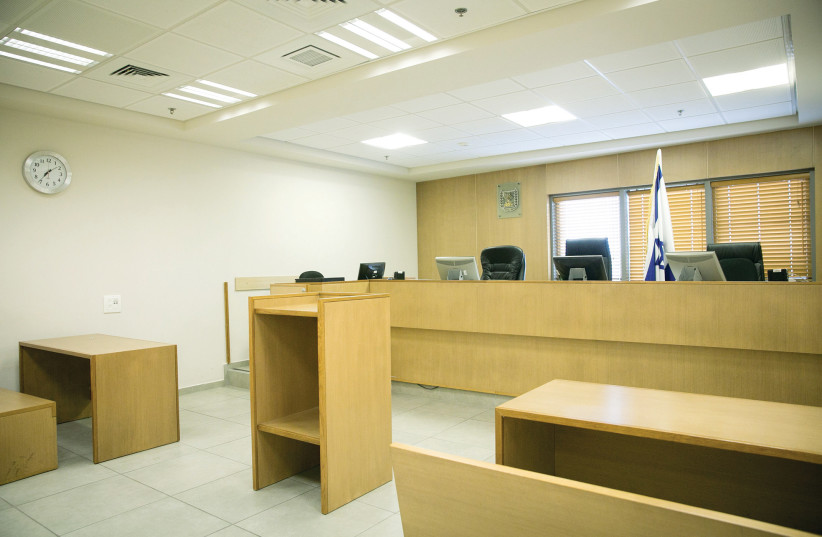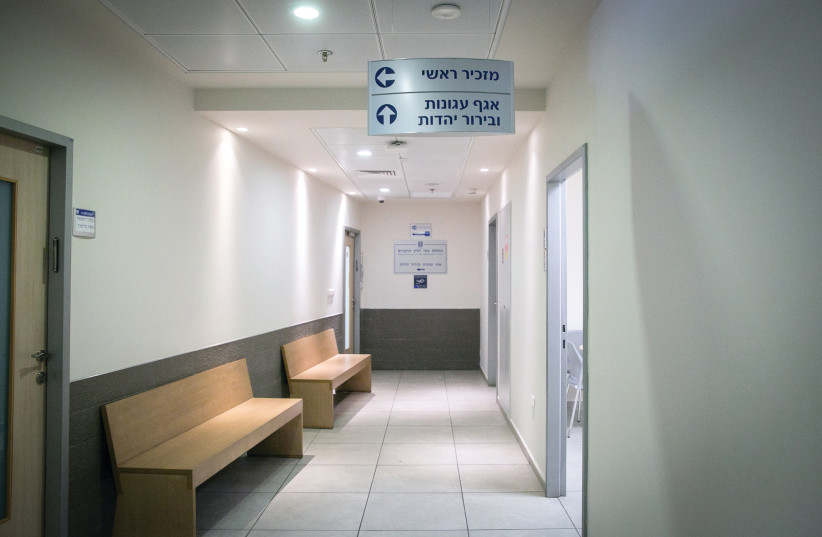I sit across the room from her as she positions herself on the very edge of the sofa, her small body tense and shaking, with her hands constantly wiping tears that won’t stop flowing. Her pain is palpable and every movement shouts out, “Have I not suffered enough?”
The violence, abuse, neglect... hasn’t it been enough?
Her story comes pouring out.
“For more than ten years, I’ve been begging for a get [halachic divorce] and God won’t stop punishing me, as if I did something so awful to warrant this suffering.”
I look directly at her and just want to shout back, “It’s not your fault! You’re not being punished... This is just what fate has in store and it’s the system that’s so messed up, not you.”

I want to tell her that she should just let go, get started on a new life, find a new man, indulge herself and she deserves to be happy, to be loved, to be touched, family and kids.
That’s what I desperately want to say. But I remain silent. I try to absorb all her pain and give her the strength to deal with what life has given her. Because the reality is that life still moves along outside that door. She has work, neighbors and bills to deal with.
It’s been three years since I first came to Yad La’isha, an organization that works to provide legal and practical aid to women who are being denied a get and are trapped in unwanted marriages. As the organization’s social worker for Israel’s northern region, each and every day I work alongside women who simply want freedom.
With every case, I remain astounded that in 2022, in Israel – a country that describes itself as proudly western and advanced, a democracy where humanity and personal liberties are lauded as core values – a woman is still deprived of basic rights and needs to literally fight to free herself.
A woman who wants to divorce for one reason or another – whether it is incompatibility, she is no longer attracted to her spouse or far worse, that she has become a victim of violence or abuse in any of its forms – she remains completely dependent upon his will.
And experience shows that such a man who is willing to be manipulative, violent and abusive in a marriage will have little desire to set those traits aside and let his wife go free. He will harness every last shred of cynical control and leverage the rights that the law gives him.
As such, so many women find themselves imprisoned in relationships filled with such abuse and subject to the whim of him and other men, who rule over the rabbinical courts that could offer her a path to freedom.

The stories accumulate in our case files: The mother of nine who was able to flee to a shelter with five of her children and then made her way to our offices, describing a husband who not only refuses to let her out of the marriage but continues to abuse her. He has manipulated his other children to turn against her, threatening her chances to ever restore their love for their mother.
Another woman describes her jealous husband, who was prone to violence and despite them living apart for years, continues to track her movements, and threatens her and their children. Despite these facts, he was able to convince the court that he remains a loving and caring father, and is committed to providing a warm household.
Yet another woman came from what outsiders would have considered a normative family with your classic Father of the Year, until one day it was revealed that he had been raping their daughter for the past seven years. He continues his abuse even from behind bars, continuing to refuse to grant his wife a get and conditioning it on all kinds of financial demands.
Then there’s the story of a truly remarkable woman we encountered. Young and dynamic, shortly after the wedding she was diagnosed with cancer. Her husband left for what he called a vacation, taking all their savings with him. For seven years, even as she fought her disease, he left her alone with increasing debts.
So many painful stories of manipulation come across our desks, women left at all stages of life with no recourse but to fight for their freedoms, because even if they were willing to move on, few, if any, have the option of finding new love because any future children she might have without a get would be considered illegitimate by Jewish law.
We are an all-woman staff of rabbinical court advocates, lawyers and social workers, who work tirelessly to find women a way out while ensuring they know they are not alone in their quest. Every woman who comes through our doors receives free legal advice, alongside emotional support throughout the often arduous path until they are granted the get.
As a woman, I believe in the power of building a supportive community and I know that by surrounding these victims with other women, we can provide them with a feeling of strength and hope.
In the past, if such a woman would arrive at the beit din (rabbinical court), all she would see around her were men: Lawyers, judges, the court reporter, even the secretary. Now, she is accompanied by proud and compassionate female figures, providing her with a sense of confidence that she is in the good hands of those who appreciate her pain.
Often, in addition to accompanying our clients to court, I make home visits and help set up connections with social-welfare agencies that can help and assist in navigating other bureaucratic obstacles. Where relevant, we assist in financial planning or in finding gainful employment, so she can have a greater level of independence.
Each and every woman and case is different, and each needs different services and support on the path towards a get. Often, our role will continue afterwards. Today, after seeing all these heartbreaking stories, I am forced to admit that I truly didn’t understand what the issue of getting refusal and women in trapped marriages (agunot) was all about.
Today, on International Agunah Awareness Day, I, alongside all the others I am blessed to work with at Yad La’isha, feel it critical to share their stories. The women who are experiencing these traumas deserve to know that they are not alone in this challenge. Get abuse is a societal problem, and if we claim to be a society of humanism and compassion, we all need to fight to address this issue and for policy change alongside increased awareness.
It’s an honor to be a part of this process and to have a small part in giving these women and families the freedom they so need and deserve.
The writer is a social worker with Ohr Torah Stone’s Yad La’isha, the Monica Dennis Goldberg Legal Aid Center and Hotline for Agunot.
